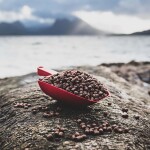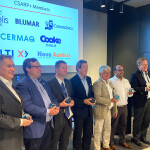Scottish politician Struan Stevenson has had a change of heart.
Late last year, the VP of the European Parliament’s fisheries committee took a jab at pangasius, calling Vietnam’s Mekong River where the fish is raised “filthy” and accusing the industry of “ruthlessly” exploiting workers.
But on Monday, after accepting the Vietnam Association of Seafood Exporters and Producers’ (VASEP) invitation to visit Vietnam and seeing the industry first-hand, Stevenson rescinded his criticism, this time calling the industry “dynamic.”
“I discovered a dynamic new industry, meeting world-class welfare and hygiene standards and producing a quality product under first-rate conditions,” he said. “Only the biggest, most efficient pangasius farms in the Mekong Delta export to Europe. These facilities get inspected and approved by the European Commission, and are regularly audited by major supermarket buyers like ASDA, Tesco, and Carrefour, so that EU consumers have no need to worry about the quality of the food on their tables.”
Stevenson lauded the economic and social benefits of Vietnam’s pangasius industry “for millions of desperately poor people in the Mekong Delta.”
He also allayed fears that inexpensive pangasius imports would hurt EU producers, saying, “The EU has benefited from the rapid expansion of fish farming in Vietnam by exporting expertise together with processing and farming equipment.”
Stevenson didn’t mince words in November when he said the Mekong is “one of the most heavily polluted rivers on Earth” and is “teeming with bacteria and poisoned with industrial effluents, including arsenic, mercury and DDT.” He also accused the industry of employing “slave labor” and “drastically” undercutting European fish farmers and fishermen on price.
But Stevenson on Monday admitted that his words were “misplaced.”
Before visiting Vietnam, Struan was briefed on the country’s pangasius industry by members of the SEAT (Sustaining Ethical Aquaculture Trade) project at Stirling University’s Institute of Aquaculture in Scotland last month. A press release issued by SEAT quoted Stevenson as saying, “What I heard this morning has given me a lot of confidence. Now I’m pretty well convinced that things are being dealt with in a proper, scientific way.”
VASEP’s interaction with Stevenson may also mark a turning point for the organization, which is now being more aggressive about promoting its pangasius industry. After Stevenson’s comments in November, VASEP General Secretary Truong Dinh Hoe immediately defended the industry, emphasizing that pangasius is raised and processed under “very strict global standards.”
And at the European Seafood Exposition in Belgium early this month, VASEP, along with Vietnam’s Ministry of Industry and Trade and Vietnam’s Embassy in the EU, hosted a seminar on pangasius, heightening awareness of the product and increasing transparency of the industry.





